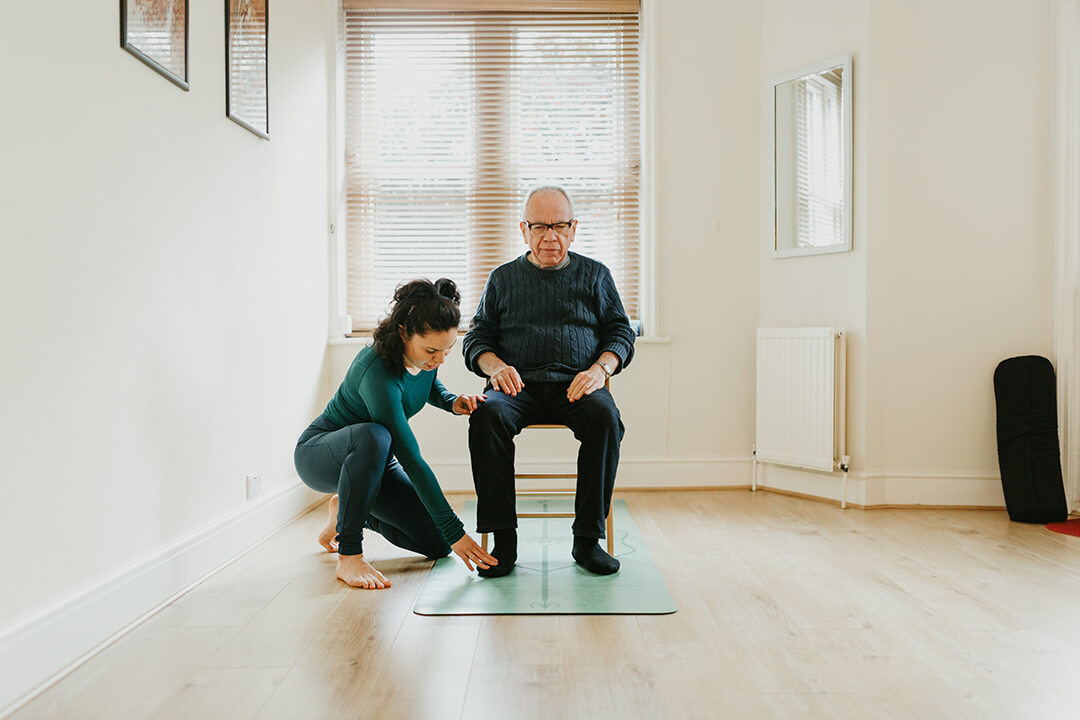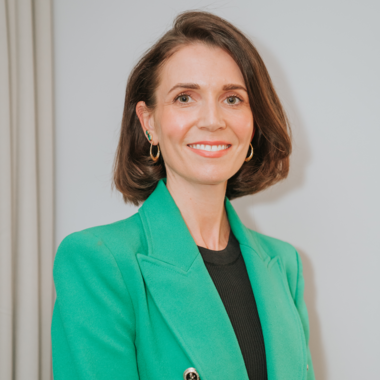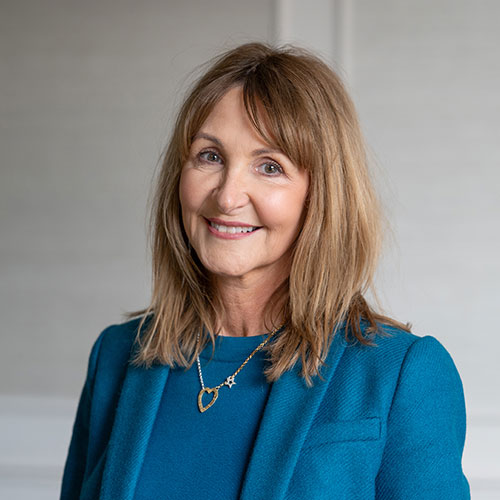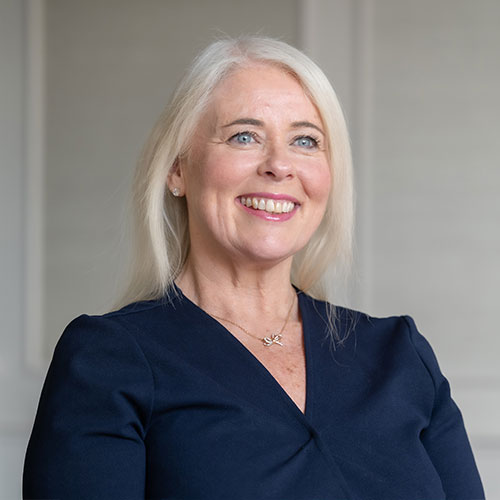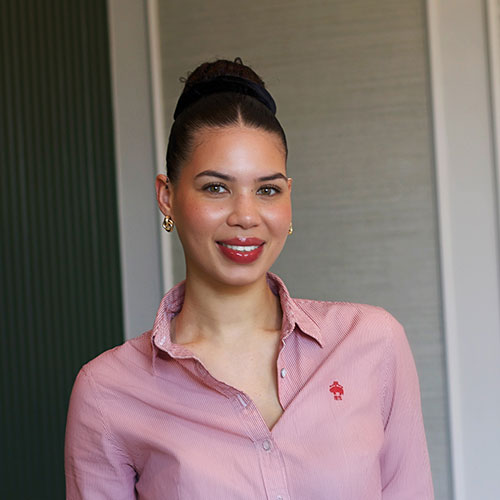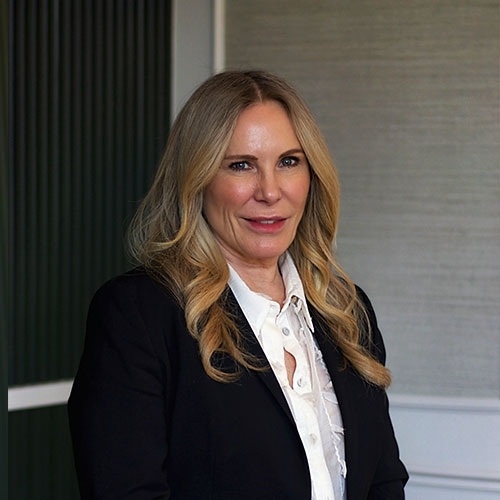Grace in Motion: Charlotte Kahn’s Yoga for Parkinson’s at Loveday
Charlotte Kahn from Maida Care has been leading weekly chair yoga sessions at Loveday since the beginning of 2022. Her sessions have become a much-loved feature of our wellbeing programme for all Members, including those living with Parkinson’s. With an understanding of both the physical and emotional challenges that come with the condition, Charlotte creates an environment where Members feel empowered, supported and uplifted.
Her sessions are thoughtfully adapted to each individual, helping to enhance mobility, reduce anxiety and nurture a sense of inner calm.
Loveday is proud to collaborate with Charlotte as part of our commitment to delivering exceptional, tailored care that enriches life at every stage.
Below she shares an insight into her approach to Parkinson’s:
What inspired you to adapt your yoga classes specifically for individuals living with Parkinson’s?
My father was diagnosed with Parkinson’s in 2017, shortly after I became a yoga teacher. I witnessed first-hand how the condition impacts someone physically and emotionally. Wanting to support him and those like him I studied to become a yoga therapist and started a lifelong mission to provide accessible yoga to help improve quality of life for people with Parkinson’s.
Adapting yoga for people with health conditions like Parkinson’s is the most rewarding and joyful work I do. At its core, I believe yoga is inclusive and accessible to all.
Can you describe some of the key modifications you’ve made to ensure the classes are accessible and safe?
Parkinson’s affects everyone differently, so I begin by assessing each person’s needs, stage of Parkinson’s and any additional health conditions. This helps me identify any potential contradictions, ensuring the classes are appropriate and effective for everyone.
My yoga classes are chair-based, and start with gentle movement to warm up tight muscles. Exercises are offered in stages, and poses are not held for long periods. I speak clearly and at a measured pace to accommodate any cognitive issues and always demonstrate each exercise.
Importantly, I encourage participants to listen to their bodies and rest when they need to.
How does yoga benefit those living with Parkinson’s, both physically and emotionally?
Yoga can help maintain mobility, flexibility, balance and strength through stretching, joint mobilising, and strengthening poses. This keeps people active and can greatly improve their confidence and sense of achievement.
Breathwork and guided relaxations are powerful tools for reducing anxiety. In deep relaxation, almost like magic, I’ve witnessed many students’ tremors subside.
Parkinson’s is a progressive condition and this can cause fear, anger and despair. What does not change however is the individual’s inner being, our unchangeable soul and maintaining this connection to soul is what yoga does best.
Are there particular movements or breathing techniques that seem especially helpful for managing symptoms?
Exercise is necessary to slow down the functional declines associated with Parkinson’s. Neuroplasticity based exercises, like marching in place lifting opposite arm and leg, that stimulate the brain are very helpful.
To address stooped posture, we practice “Mountain Pose” to reintroduce the sensation of sitting upright. Postural issues often impact breathing, so including breathing practices like deep abdominal ‘belly’ breathing and Bhramari (Humming Bee Breath) is beneficial.
Since Parkinson’s can weaken vocal muscles, practices where sound is made, such as mantra, or even singing, helps strengthen the voice and energise the throat centre.
How do you approach balance and mobility challenges in your sessions?
For balance, seated exercises are used to engage the core strength, such as lifting one foot from the floor or lifting both arms for a short hold. For mobility, I tailor exercises to each person’s abilities, encouraging students to explore their own range of motion.
For those who are able, I encourage “sit to stand” transitions. From standing, we use the chair to practice “heel raises” and single leg balances in “Tree Pose”. These exercises support better balance, coordination and reduce risk of falls.
What feedback have you received from Members or their families since introducing these adaptations?
The response has been wonderful. Loveday Members enjoy the sessions, and many have shared how uplifted they feel afterwards.
During breathing practices and relaxation, the parasympathetic nervous system is activated, which is key to reducing anxiety. I often see that Members are visibly calmer after sessions.
Anything additional?
Alongside my yoga work, I run Maida Care, an independent agency that brings a wide range of specialist wellbeing services into care homes. This includes holistic therapies like massage, wellbeing classes like sound baths, live entertainment and art therapy. All these services are aimed at enriching lives of people, while promoting their overall health and happiness.
For more information on Parkinson’s care visit: https://www.lovedayandco.com/specialist-conditions/parkinsons-care/
